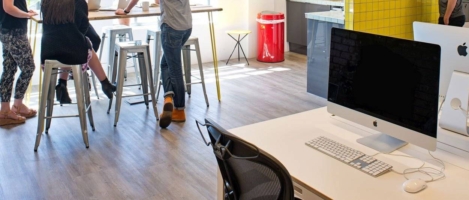August 5, 2015
Near universal uptake of flexible working driving increased use of Cloud 0
 One of the consequences of the near universal uptake of flexible working practices amongst smaller businesses is a growth in the use of the technology best suited to make them work such as Cloud based data services. That is one of the key findings of a new study from BT Business and the British Chambers of Commerce (BCC). According to the survey of just over 300 small and medium sized business owners and decision makers, nearly all (91 percent) have at least one member of staff working away from their main place of work for significant periods, and a fifth (19 percent) claim that more than half of their staff have adopted some form of flexible working. The report concludes that this is the main driver in the growth of Cloud data services with 69 percent of firms already using cloud-based applications and more than half (53 percent) saying that they are essential for agile working.
One of the consequences of the near universal uptake of flexible working practices amongst smaller businesses is a growth in the use of the technology best suited to make them work such as Cloud based data services. That is one of the key findings of a new study from BT Business and the British Chambers of Commerce (BCC). According to the survey of just over 300 small and medium sized business owners and decision makers, nearly all (91 percent) have at least one member of staff working away from their main place of work for significant periods, and a fifth (19 percent) claim that more than half of their staff have adopted some form of flexible working. The report concludes that this is the main driver in the growth of Cloud data services with 69 percent of firms already using cloud-based applications and more than half (53 percent) saying that they are essential for agile working.

































September 8, 2015
Over a fifth of working mothers denied flexible hours are forced to quit 0
by Sara Bean • Comment, Flexible working, News, Workplace
(more…)